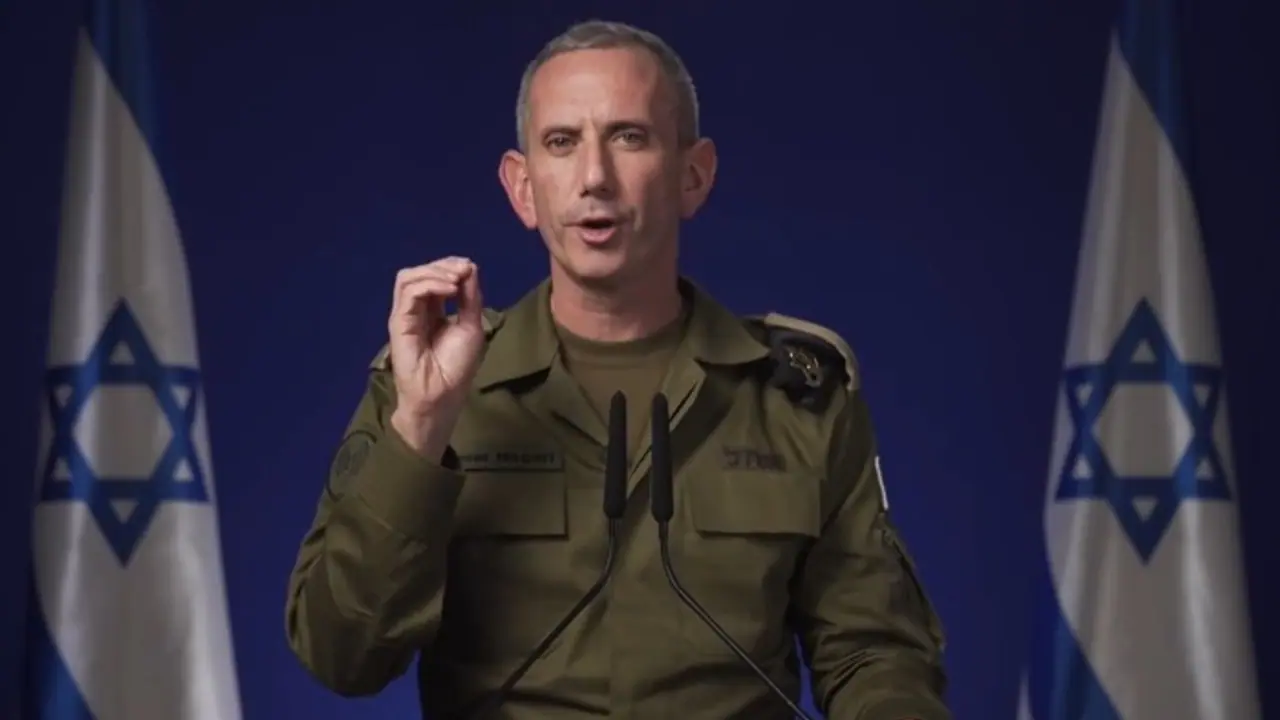Israel on Tuesday reaffirmed its determination to avoid a repeat of the October 7 attacks on any of its borders as the conflict with Hezbollah escalates along the country's northern frontier.
Israel on Tuesday reaffirmed its determination to avoid a repeat of the October 7 attacks on any of its borders as the conflict with Hezbollah escalates along the country's northern frontier. In a video statement released in English, Israel Defense Forces (IDF) spokesperson Daniel Hagari declared that Israel will continue to conduct targeted operations against Hezbollah strongholds in southern Lebanon. The aim, he said, is to neutralize the threat posed by Hezbollah forces, which, according to Israel, have converted Lebanese villages near the Israeli border into military bases.

Hagari’s statement comes amid rising tensions and frequent cross-border hostilities between Hezbollah and Israel, which have displaced tens of thousands of people on both sides of the border. The spokesperson reiterated Israel’s focus on safeguarding its citizens, citing Hezbollah’s plans for a potential invasion under the code name “Conquer the Galilee” as part of a broader strategy to attack Israeli communities.
According to Hagari, Hezbollah had been preparing Lebanese villages near Israel as launchpads for an assault on Israeli civilians, mimicking the brutal attacks of October 7. On that day, militants launched a massive surprise attack on Israel, targeting civilians and security forces alike, resulting in significant loss of life.
"The Israel Defense Forces is conducting limited and targeted raids along Israel’s northern border against the threat Hezbollah poses to civilians in northern Israel. These localized ground raids will target Hezbollah strongholds that threaten Israeli towns, kibbutzim and communities along our border," Hagari said.
"Hezbollah turned Lebanese villages next to Israeli villages into military bases all ready for an attack on Israel. Hezbollah had prepared to use those villages as staging grounds for an 7 October style invasion into Israeli homes. Hezbollah planned to invade Israel, attack Israeli communities and massacre innocent men, women and children. They called this plan “Conquer the Galilee”," he added.
Hagari also pointed out that the United Nations Security Council’s 2006 Resolution 1701, which called for the disarmament of non-governmental armed groups in southern Lebanon, has been largely ignored. Eighteen years after its adoption, Hezbollah has emerged as one of the largest non-state military forces in the world, heavily entrenched in southern Lebanon.
"For decades, UN security council resolutions have called on Lebanon to make sure that its territory is free of non-governmental armed groups. UN security council resolution 1701 from 2006, agreed upon by Israel and Lebanon, requires that there be no armed personnel, assets and weapons other than those of the government of Lebanon and Unifil in southern Lebanon," he said.
"18 years after [resolution] 1701, Hezbollah is the world’s largest non-state army, and southern Lebanon is swarming with Hezbollah terrorists and weapons. If the state of Lebanon and the world can’t push Hezbollah away from our border, we have no choice but to do it ourselves," he further added.
"I want to make it clear our war is with Hezbollah, not with the people of Lebanon. We do not want to harm Lebanese civilians, and we are taking measures to prevent that. We will not let [a] 7 October happen again on any one of our borders. We will continue doing whatever necessary so that Israeli families can return to their homes in safety and security," Hagari concluded.
The conflict has already had devastating humanitarian consequences. The Lebanese government reported that since Israel intensified its airstrikes, approximately 1,000 people have been killed, including women and children. An estimated 6,000 people have been injured, and around one million Lebanese citizens have been displaced from their homes.
On the Israeli side, roughly 60,000 residents in the northern region have been forced to flee their homes due to rocket attacks from Hezbollah and other anti-Israeli groups operating in southern Lebanon. These exchanges of fire have claimed dozens of lives in Lebanon, and recent explosions attributed to Israeli operations have left thousands wounded.
In an incident last month, detonations of pagers and walkie-talkies reportedly targeted Hezbollah operatives in Lebanon, causing significant casualties. While no official claim of responsibility was made, the attack is widely believed to have been carried out by Israeli forces as part of their broader campaign against Hezbollah.
The growing violence between Israel and Hezbollah has prompted international concern. Earlier today, the United Nations reminded its members of Article 2.4 of the UN Charter, which prohibits the use of force against the territorial integrity or political independence of any state. The UN’s social media accounts highlighted this message in an apparent response to the ongoing airstrikes by Israel in Lebanon.
Israel’s ambassador to the UN, Danny Danon, criticized a recent non-binding vote by the UN General Assembly, which called for an end to Israel’s decades-long occupation of the Palestinian West Bank. Danon labeled the resolution as “shameful,” asserting that it failed to recognize the security threats Israel faces from groups like Hezbollah and Hamas.
